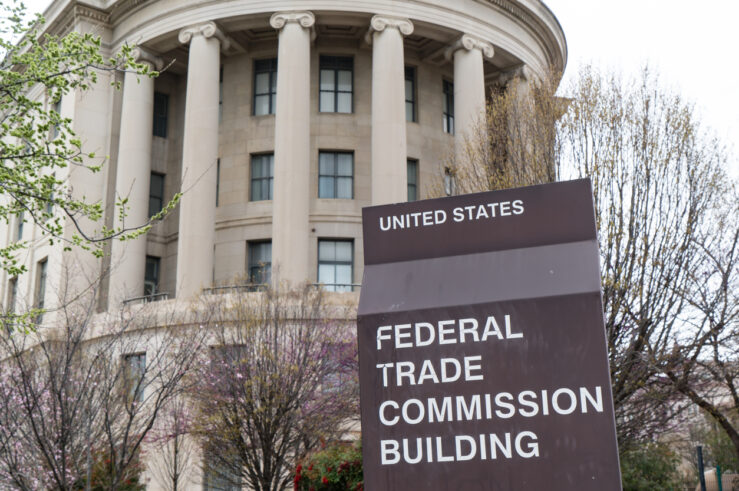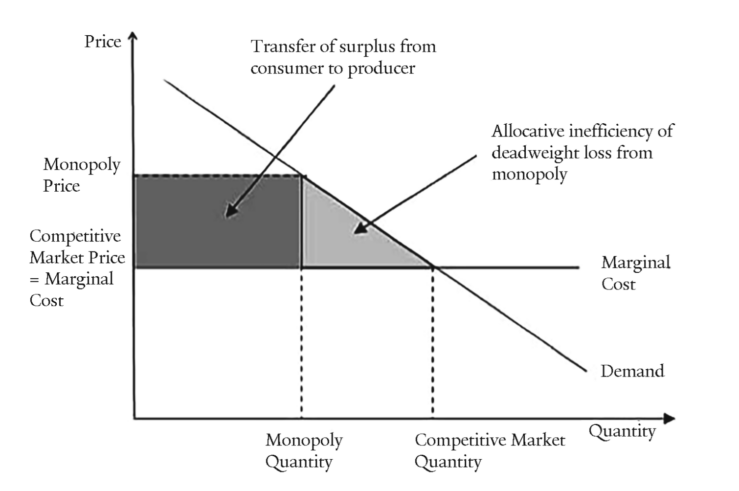Showing results for: “digital markets act”
Lina Khan’s Privacy Proposals Are at Odds with Market Principles and Consumer Welfare
The Federal Trade Commission (FTC) is at it again, threatening new sorts of regulatory interventions in the legitimate welfare-enhancing activities of businesses—this time in the realm of data collection by firms. Discussion In an April 11 speech at the International Association of Privacy Professionals’ Global Privacy Summit, FTC Chair Lina Khan set forth a litany ... Lina Khan’s Privacy Proposals Are at Odds with Market Principles and Consumer Welfare
Attention Markets: They Know Them When they See Them
A raft of progressive scholars in recent years have argued that antitrust law remains blind to the emergence of so-called “attention markets,” in which firms compete by converting user attention into advertising revenue. This blindness, the scholars argue, has caused antitrust enforcers to clear harmful mergers in these industries. It certainly appears the argument is ... Attention Markets: They Know Them When they See Them
FTC UMC Rulemakings Would Prove Legal Failures
Federal Trade Commission (FTC) competition rulemakings, like spring, are in the air. But do they make policy or legal sense? In two commentaries last summer (see here and here), I argued that FTC competition rulemaking initiatives would not pass cost-benefit muster, on both legal grounds and economic policy grounds. As a legal matter, I stressed ... FTC UMC Rulemakings Would Prove Legal Failures
Assessing Less Restrictive Alternatives and Interbrand Competition in Epic v Apple
The International Center for Law & Economics (ICLE) filed an amicus brief on behalf of itself and 26 distinguished law & economics scholars with the 9th U.S. Circuit Court of Appeals in the hotly anticipated and intensely important Epic Games v Apple case. A fantastic group of attorneys from White & Case generously assisted us ... Assessing Less Restrictive Alternatives and Interbrand Competition in Epic v Apple
In Apple v Epic, 9th Circuit Should Remember that Antitrust Forbids Enhancing, not Exercising, Market Power
On March 31, I and several other law and economics scholars filed an amicus brief in Epic Games v. Apple, which is on appeal to the U.S. Court of Appeals for Ninth Circuit. In this post, I summarize the central arguments of the brief, which was joined by Alden Abbott, Henry Butler, Alan Meese, Aurelien ... In Apple v Epic, 9th Circuit Should Remember that Antitrust Forbids Enhancing, not Exercising, Market Power
Suggested Redline Edits to the DOJ’s Letter to Judiciary Committee Leadership
The Biden administration finally has taken a public position on parallel House (H.R. 3816) and Senate (S. 2992) bills that would impose new welfare-reducing regulatory constraints on the ability of large digital platforms to engage in innovative business practices that benefit consumers and the economy. The administration’s articulation of its position—set forth in a March ... Suggested Redline Edits to the DOJ’s Letter to Judiciary Committee Leadership
US-EU Agreement Hopes to Keep Transatlantic Data Flowing
Though details remain scant (and thus, any final judgment would be premature), initial word on the new Trans-Atlantic Data Privacy Framework agreed to, in principle, by the White House and the European Commission suggests that it could be a workable successor to the Privacy Shield agreement that was invalidated by the Court of Justice of ... US-EU Agreement Hopes to Keep Transatlantic Data Flowing
Senate Bill Looks to Rebalance ‘Internet Freedom’ and Creators’ Rights
All too frequently, vocal advocates for “Internet Freedom” imagine it exists along just a single dimension: the extent to which it permits individuals and firms to interact in new and unusual ways. But that is not the sum of the Internet’s social value. The technologies that underlie our digital media remain a relatively new means ... Senate Bill Looks to Rebalance ‘Internet Freedom’ and Creators’ Rights
Call for Submissions on FTC UMC Rulemaking Authority
The Limits of FTC UMC Rulemaking Symposium There is widespread interest in the potential tools that the Biden administration FTC may use to address a range of competition-related and competition-adjacent concerns. Among other issues, there have been indications that the FTC may use its broad UMC authority under Section 5 of the FTC Act to ... Call for Submissions on FTC UMC Rulemaking Authority
Final DMA: Now We Know Where We’re Going, but We Still Don’t Know Why
After years of debate and negotiations, European Lawmakers have agreed upon what will most likely be the final iteration of the Digital Markets Act (“DMA”), following the March 24 final round of “trilogue” talks. For the uninitiated, the DMA is one in a string of legislative proposals around the globe intended to “rein in” tech ... Final DMA: Now We Know Where We’re Going, but We Still Don’t Know Why
Toward a Dynamic Consumer Welfare Standard for Contemporary U.S. Antitrust Enforcement
For decades, consumer-welfare enhancement appeared to be a key enforcement goal of competition policy (antitrust, in the U.S. usage) in most jurisdictions: The U.S. Supreme Court famously proclaimed American antitrust law to be a “consumer welfare prescription” in Reiter v. Sonotone Corp. (1979). A study by the current adviser to the European Competition Commission’s chief ... Toward a Dynamic Consumer Welfare Standard for Contemporary U.S. Antitrust Enforcement
The DMA and Antitrust: A Liaison Dangereuse
As the European Union’s Digital Markets Act (DMA) has entered the final stage of its approval process, one matter the inter-institutional negotiations appears likely to leave unresolved is how the DMA’s the relationship with competition law affects the very rationale and legal basis for the intervention. The DMA is explicitly grounded on the questionable assumption ... The DMA and Antitrust: A Liaison Dangereuse
















